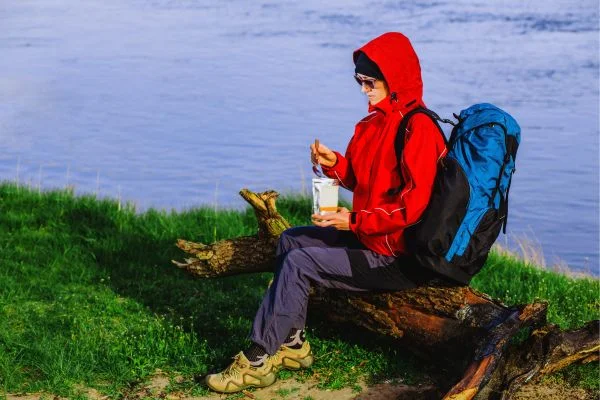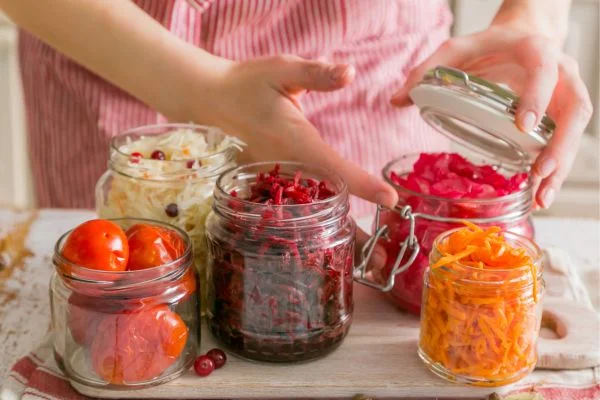Have you ever wondered how to keep food cold for a week camping? If you’ve ever gone camping with food, you know it can be challenging to keep things cold. But if you follow these tips and tricks for preparing your cooler, your food will stay fresh and delicious even when weather conditions are less than ideal.
How To Keep Food Cold For A Week Camping?

Freeze Or Refrigerate Food Overnight:
Freeze or refrigerate food overnight before you leave home. This will help keep things cool in your cooler, especially if you’re traveling by car. Pack foods that are already cold, like yogurt or milk. Pack these items if you don’t have time to freeze or refrigerate the food!
Keep Your Cooler In A Shady Spot Throughout The Day:
It would be best to keep your cooler in a shady place, but this is especially true when it’s hot outside. The sun’s rays will heat your cooler and cause the contents to spoil more quickly than they would otherwise. You’ll also want to avoid placing the cooler near heat sources, such as fires or stoves. The same goes for wind; if you put your cooler on top of a picnic table that faces the breeze, you’re going to end up with melted ice packs and spoiled food very quickly!
Read More: How To Keep Water Cold In Hydration Pack?
Pack Frozen Water Bottles:
Let’s say you’ve got a big ol’ cooler with plenty of ice, but more is needed to keep your food in good shape. So, instead of filling your camping bag with extra water jugs and adding them to the cooler, freeze some water bottles or soda cans beforehand. They’ll cool faster than ice, last longer than ice, and be easier to carry around—and they’re cheaper, too. Moreover, frozen water bottles are also less likely than regular ones to leak or burst open if you drop them on the ground.
Use Block Ice That Lasts Longer Than Cubed Ice:
There are a few reasons why block ice is the best choice for your cooler.
- First, it lasts longer than cubed ice because it’s mostly water instead of air. Block ice has less space between each piece and, therefore, freezes more quickly, so you don’t have to worry about it melting as fast. With block ice in your cooler, you can store food safely over an extended period without worrying about spoilage or waste.
- Second, block ice packs down better than cubed and melts slower when placed in the cooler (which means less time spent refilling). This makes it easier to pack food and get out on your hike before things go bad!
- Third, as mentioned above, block ice is easier to store because its shape allows for more efficient use of space within your cooler—you’ll be able to fit more items inside at once without sacrificing quality or quantity.
Pack Your Cooler According To When You’ll Use Item:
Don’t just pile your perishable items in a cooler and expect them to stay chilled. Instead, pack them according to when you’ll use them, and keep foods that need to be eaten coldest at the bottom of the cooler.
The best way to do this is by using a “first-in, first-out” method: put the items in as soon as you bring them home from the grocery store or farmers market, regardless of whether they’re going into a fridge or freezer. This way, if it’s hot outside when you get home from shopping (and it usually is), any fresh produce will still be cool enough for later consumption without sitting out exposed on ice packs all day.
If you have only one cooler bag and need room for other things like beverages and snacks while camping (or if several people are sharing one cooler), pack perishables first since they’ll go bad faster than dry goods like chips will spoil over time. To save space inside your cooler bag. Now you know various methods about how to keep food cold for a week camping.
Read More: How To Keep Food Cold When Camping?
Why Do We Need To Keep Food Cold While Camping?
Camping food should be kept cold to ensure food safety, prevent spoilage, extend storage time, store fresh ingredients, save costs, increase versatility, and prepare for unforeseen circumstances. Your camping meals will be delicious and safe if you plan ahead, have the right equipment, and follow food safety guidelines.

Food Safety:
A cold environment is vital to preventing bacterial growth and foodborne illnesses. Food poisoning can occur if perishable items such as meat, dairy products, and some vegetables are exposed to temperatures above 40°F (4.4°C) for extended periods of time, as harmful bacteria can multiply rapidly at elevated temperatures, increasing the risk of food poisoning.
Preventing Spoilage:
A cool temperature slows down the natural process by which food spoils, thereby extending the shelf life of the food. Keeping your food in the refrigerator helps to maintain its quality as well as its freshness, preventing it from becoming mushy, discoloured, or completely inedible due to spoilage.
Extended Storage:
When properly chilled food is stored for an extended period of time, it can be stored safely for a greater number of days, making it possible for campers to eat a wider variety of meals and ingredients over the course of their camping trip. A reduction in the need for frequent trips to town for resupply is an important benefit of this method.
Enjoying Fresh Ingredients:
With the help of cold storage facilities, campers will be able to bring along fresh produce, dairy products, and proteins. By doing so, you are not only enhancing the taste and nutrition of your meals, but you are also making your camping experience more enjoyable and satisfying.
Cost Savings:
By preventing spoilage and keeping food cold, you can minimize food waste and save money on groceries by reducing food waste. A camping trip can be a very economical decision, and efficient food storage can play an important role in reducing camping expenses.
Food Versatility:
A cold storage unit gives you a wider variety of meal options. The camping menu can be made to be as diverse and exciting as you like with items like salads, sandwiches, marinated meats, and more.
Emergency Preparedness:
A cold-storage supply of food can prove to be a crucial asset in unexpected situations or emergencies that may arise during your camping trip. There’s no need to worry about a delay or issue that affects your original meal plans because it provides a buffer in case of delays or issues.
Conclusion
If you’re worried about how to keep food cold for a week camping. They don’t take up much room and will provide peace of mind. If you want to ensure that every item in your cooler stays fresh for as long as possible, follow these tips for storing food properly. By keeping everything organized and using block ice instead of cubes (which melt faster), you can enjoy all your meals without worrying about spoilage!



